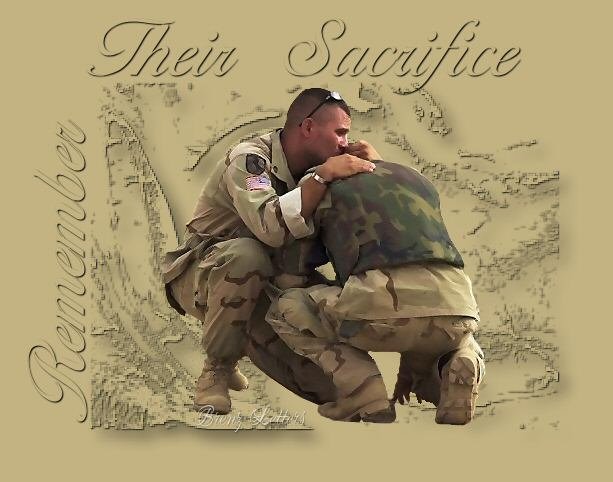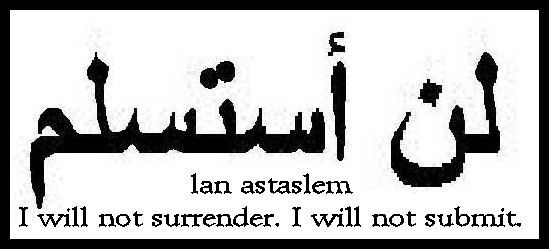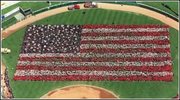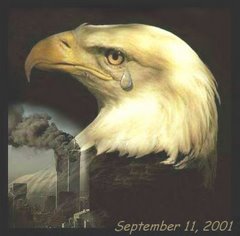Ongoing Serious Implications of Islamophobia
The report, issued 07/12/'10, is in the form of a 19 page pdf file. It consists of an enumerated list of 91 paragraphs. Yesterday I wrote a post about the Rapporteur's statement introducing the report to the HRC. In this post I will deal with what I consider to be the most important segments of the report.
The report is a reference to five classes of cases "pertaining to Human Rights Council resolution 13/16". The cases are classified as follows.
- acts of violence or discrimination, or incitement thereto, against individuals on the basis of their religion or belief
- attacks on religious sites
- religious and ethnic profiling
- religious symbols
- negative stereotyping of religions, their followers and sacred persons
When most criminal acts of a certain type are perpetrated by members of a known set, common sense directs law enforcement's attention to members of that set. Most acts of Islamic terrorism are perpetrated by Muslim men between the ages of 17 and 40. Only a Muslim, a damned fool or a traitor would object to giving extra scrutiny to members of that class when screening for security risks in transportation.
Questions concerning religious symbols are raised in ¶87 on page 18. "The Special Rapporteur takes the view that the following questions should be kept in mind when assessing the legality of such bans or restrictions:"
- is the construction, use or display of certain religious symbols constitutive of the freedom to manifest one’s religion or belief?
The venerable Brill Encyclopedia of Islam (EOI) entry on minarets makes plain that minarets are a political statement of Islamic supremacism. Interestingly, given current Turkish Erdogan’s provocative statement while mayor of Istanbul -- (the full statement was quoted in a NY Times story by Stephen Kinzer from 2/16/1998: "The mosques are our barracks, the domes are our helmets, the minarets are our swords, and the faithful are our army”), cited by opponents of minaret construction in Switzerland — the observations from the Brill EOI about the Ottoman perspective on minarets are of particular interest.
Refer to Islamic Architecture: Form, Function, and Meaning By Robert Hillenbrand. See also Brill's Encyclopedia of Islam Pg. 227.
The concept of minarets function as a symbol of supremacism is reinforced by the requirement that dhimmis not build as high as Islamic structures. [Reliance of the Traveller, o11.5(5).]
I know of no good cause why the citizens of Switzerland should be compelled to allow the Muslims to lord it over them with minarets as symbols of power and supremacy. If you click the link to Reliance o11.5 and read the sixth item, you will discover that where Allah's writ runs, Christians are prohibited from displaying crosses and ringing bells. Reciprocity anyone?
- Is the ban or restriction discriminatory (in a direct or indirect manner) vis-à-vis specific groups of the population?
- Is the ban or restriction on the display of religious symbols proportionate to the necessity for security measures by the State concerned?
- Is the ban or restriction on the display of religious symbols necessary to uphold the principle of equality of men and women?
- Does the ban or restriction take into account the individual freedom to wear or not to wear religious symbols?
consideration."
In ¶88, also on pg. 18, the S..R. gets down to the important stuff.
The Special Rapporteur regrets reports of stereotyping which do not contribute to the creation of an environment conducive to constructive and peaceful dialogue among communities. Nonetheless, he recalls that peaceful expressions of opinions and ideas should always be tolerated, as long as they do not fall under the restrictions in articles 19, paragraph 3, and 201 of the International Covenant on Civil and Political Rights.
- regrets reports of stereotyping
- which do not contribute to the creation of an environment conducive to constructive and peaceful dialogue
- among communities
Of course, those banners reading "Freedom Go to Hell", "Islam Will Dominate The World" and "Behead Those Who Insult Islam" contribute greatly to "constructive and peaceful dialogue". Yeah, right.
We find ¶89 on page 19 of the report.
The Special Rapporteur distinguishes between stereotyping of religions on one hand and of religious followers or sacred persons on the other. With regard to stereotyping of religious followers and of sacred persons, the Special Rapporteur
recalls that the right to freedom of expression may be restricted in order to protect, inter alia, the rights or reputations of others. However, in accordance with articles 19 and 20 of the International Covenant on Civil and Political Rights, any restrictions on the right to freedom of expressions must be established in law; they must pursue a legitimate aim; and they must be proportional to the aim sought to be achieved. As a result, the Special Rapporteur believes that a very high threshold should be met and that the defamatory expressions targeting individuals must have been proven false before they warrant restrictions and sanctions thereon. Moreover, he recommends that sanctions be of a civil nature only and that fines arising from civil defamation procedures respect the principle of proportionality in order not to have a long-lasting and chilling effect on the right to freedom of expression.
recalls that the right to freedom of expression may be restricted in order to protect, inter alia, the rights or reputations of others. However, in accordance with articles 19 and 20 of the International Covenant on Civil and Political Rights, any restrictions on the right to freedom of expressions must be established in law; they must pursue a legitimate aim; and they must be proportional to the aim sought to be achieved. As a result, the Special Rapporteur believes that a very high threshold should be met and that the defamatory expressions targeting individuals must have been proven false before they warrant restrictions and sanctions thereon. Moreover, he recommends that sanctions be of a civil nature only and that fines arising from civil defamation procedures respect the principle of proportionality in order not to have a long-lasting and chilling effect on the right to freedom of expression.
- stereotyping of religious followers
- in order to protect, inter alia, the rights
- a very high threshold should be met
- defamatory expressions targeting individuals must have been proven false
The issue of stereotyping religions comes up in ¶90.
With regard to stereotyping of religions, he recalls that vigorously interrogating and criticizing religious doctrines and their teachings is thoroughly legitimate and constitutes a significant part of the exercise of the right to freedom of opinion or expression. Therefore, the Special Rapporteur would like to reiterate that domestic blasphemy laws aiming to protect religions per se can prove counterproductive since they could result in de facto censure of robust examination of
religious doctrines and teachings and of inter- and intra-religious criticism. Moreover, the Special Rapporteur received reports that many of these laws afford different levels of protection to different religions and have often proved to be applied in a discriminatory manner. He was informed of numerous examples of persecution of religious minorities or dissenting believers, but also of atheists and non-theists, as a result of legislation on religious offences or overzealous application of laws that may be fairly neutral on the face of it. Consequently, the Special Rapporteur encourages States to move away from the notion of defamation of religions towards the legal concept of advocacy of racial or religious hatred that constitutes incitement to discrimination, hostility or violence in order to anchor the debate in the relevant existing international legal framework, and in particular that provided in the International Covenant on Civil and Political Rights.
religious doctrines and teachings and of inter- and intra-religious criticism. Moreover, the Special Rapporteur received reports that many of these laws afford different levels of protection to different religions and have often proved to be applied in a discriminatory manner. He was informed of numerous examples of persecution of religious minorities or dissenting believers, but also of atheists and non-theists, as a result of legislation on religious offences or overzealous application of laws that may be fairly neutral on the face of it. Consequently, the Special Rapporteur encourages States to move away from the notion of defamation of religions towards the legal concept of advocacy of racial or religious hatred that constitutes incitement to discrimination, hostility or violence in order to anchor the debate in the relevant existing international legal framework, and in particular that provided in the International Covenant on Civil and Political Rights.
- vigorously interrogating ... religious doctrines constitutes a significant part of the exercise of the right to freedom of opinion or expression.
- persecution of religious minorities or dissenting believers,
- advocacy of racial or religious hatred that constitutes incitement to discrimination, hostility or violence
¶91 illustrates the insanity of the basic concept.
Advocacy of racial or religious hatred is a symptom, the external manifestation of something much more profound which is intolerance and bigotry. Intolerance against individuals based on their religion or belief unfortunately continues to be manifested in different ways. It is therefore critical that States find the most effective ways through which to protect individuals from advocacy of hatred and violence by others. While legislative responses have often been relied on by States to respond to these phenomena, they are far from being sufficient to bring about real changes in mindsets, perceptions and discourse. Indeed, tackling the root causes of manifestations of religious intolerance affecting individual’s human rights requires a much broader set of policy measures, for example in the areas of education, awareness-raising and interreligious and intercultural dialogue. The Special Rapporteur therefore strongly recommends that States put a strong emphasis on a broad range of preventive measures which aim at fostering a peaceful society where, inter alia, freedom of expression and freedom of religion or belief may be fully exercised by all individuals.
- Advocacy of racial or religious hatred is a symptom, the external manifestation of something much more profound which is intolerance and bigotry.
- advocacy of hatred and violence
- a peaceful society where ... freedom of expression and freedom of religion or belief may be fully exercised by all individuals
08.0 APOSTASY FROM ISLAM (RIDDA)
(0: Leaving Islam is the ugliest form of unbelief
(kufr) and the worst. It may come about
through sarcasm, as when someone is told, "Trim
your nails, it is sunna," and he replies, "I would
not do it even if it were," as opposed to when some
circumstance exists which exonerates him of having
committed apostasy, such as when his tongue
runs away with him, or when he is quoting someone,
or says it out of fear.)
08.1 When a person who has reached puberty
and is sane voluntarily apostatizes from Islam, he
deserves to be killed.
08.2 In such a case, it is obligatory for the
caliph (A: or his representative) to ask him to
repent and return to Islam. If he does, it is
accepted from him, but if he refuses, he is
immediately killed.
(0: Leaving Islam is the ugliest form of unbelief
(kufr) and the worst. It may come about
through sarcasm, as when someone is told, "Trim
your nails, it is sunna," and he replies, "I would
not do it even if it were," as opposed to when some
circumstance exists which exonerates him of having
committed apostasy, such as when his tongue
runs away with him, or when he is quoting someone,
or says it out of fear.)
08.1 When a person who has reached puberty
and is sane voluntarily apostatizes from Islam, he
deserves to be killed.
08.2 In such a case, it is obligatory for the
caliph (A: or his representative) to ask him to
repent and return to Islam. If he does, it is
accepted from him, but if he refuses, he is
immediately killed.
To comprehend the full enormity of that which the OIC seeks to impose upon us through the HRC & GA resolutions which they are seeking to insert into ICERD through a binding protocol, you need to delve further into Shari'ah. O8.7 contains a list of 20 acts and attitudes which entail apostasy. Any negative statement about Allah or Moe; any reviling or expression of doubt about Islam or denial of any part of the Qur'an gets a Muslim killed.
That same list of prohibitions is applied to dhimmis by extension. O11.5 lists legal and social restrictions on dhimmis. O11.10 lists acts which violate the treaty of protection, subjecting the dhimmi who commits them to immediate execution. Pay special attention to the fifth item in the list: :"(5) or mentions something impermissible about Allah, the Prophet (Allah bless him and give him peace), or Islam. ".
011. IO The agreement is also violated (A: with
respect to the offender alone) if the state has stipulated
that any of the following things break it, and
one of the suhjects does so anyway. though if the
state has not stipulated that these break the agreement,
then they do not; namely, if one of the subject
people:
(1) commits adultery with a Muslim woman
or marries her:
(2) conceals spies of hostile forces;
(3) leads a Muslim away from Islam;
(4) kills a Muslim;
(5) or mentions something impermissible
about Allah, the Prophet (Allah bless him and
give him peace), or Islam.
respect to the offender alone) if the state has stipulated
that any of the following things break it, and
one of the suhjects does so anyway. though if the
state has not stipulated that these break the agreement,
then they do not; namely, if one of the subject
people:
(1) commits adultery with a Muslim woman
or marries her:
(2) conceals spies of hostile forces;
(3) leads a Muslim away from Islam;
(4) kills a Muslim;
(5) or mentions something impermissible
about Allah, the Prophet (Allah bless him and
give him peace), or Islam.
Because it inculcates hatred & incites violence, the intolerant war cult can not be tolerated. Nor can we tolerate having its blasphemy laws imposed upon us. We must rise up and raise loud objections while we are still able to do so without being fined and imprisoned for defending our lives and liberty. For this reason I exhort all lovers of life and liberty to sign the International Qur'an Petition, copy it, paste it into an email and send it to everyone you can hope to influence with an exhortation to sign and forward it.
Article 19
1. Everyone shall have the right to hold opinions without interference.
2. Everyone shall have the right to freedom of expression; this right shall include freedom to seek, receive and impart information and ideas of all kinds, regardless of frontiers, either orally, in writing or in print, in the form of art, or through any other media of his choice. 3. The exercise of the rights provided for in paragraph 2 of this article carries with it special duties and responsibilities. It may therefore be subject to certain restrictions, but these shall only be such as are provided by law and are necessary:
(a) For respect of the rights or reputations of others;
(b) For the protection of national security or of public order (ordre public), or of
public health or morals.
Article 20
1. Any propaganda for war shall be prohibited by law.
2. Any advocacy of national, racial or religious hatred that constitutes incitement to
discrimination, hostility or violence shall be prohibited by law..
1. Everyone shall have the right to hold opinions without interference.
2. Everyone shall have the right to freedom of expression; this right shall include freedom to seek, receive and impart information and ideas of all kinds, regardless of frontiers, either orally, in writing or in print, in the form of art, or through any other media of his choice. 3. The exercise of the rights provided for in paragraph 2 of this article carries with it special duties and responsibilities. It may therefore be subject to certain restrictions, but these shall only be such as are provided by law and are necessary:
(a) For respect of the rights or reputations of others;
(b) For the protection of national security or of public order (ordre public), or of
public health or morals.
Article 20
1. Any propaganda for war shall be prohibited by law.
2. Any advocacy of national, racial or religious hatred that constitutes incitement to
discrimination, hostility or violence shall be prohibited by law..
- 7. Expresses deep concern in this respect that Islam is frequently and wrongly
associated with human rights violations and terrorism and, in this regard, regrets the laws or
administrative measures specifically designed to control and monitor Muslim minorities,
thereby stigmatizing them and legitimizing the discrimination they experience; [¶'5-7 of the pdf. The reference to the Motoons is obvious!]











































|